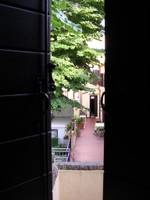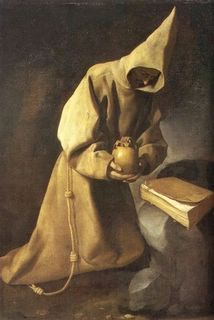
About the Catholica
Previous Posts
Toscana and the Refuges of LightThe Anti-Narnia
Ballad of the White Horse
Red and Black (at the OCP Cafe)
Dvorâk
Polyphonic Bliss
Best. Motet. Ever.
Syndication

News
Seattle CatholicCatholic Exchange
Crunchy Catholicism
Being CatholicCaelum Et Terra
Mystical Rose Herbals
Mary Gardens
Tridentine Tiramisú

St-Martin de Bréthencourt
Chartres Pilgrimage
(muchas fotos!)
Campos Photos
LMSEW Photos
Catholic Artists Today

Official Passion Site
Smallpax Guild
Nicholas Wilton Music
StudiObrien
Via Rosa Rosaries
Regina Doman
Poetry of Pavel Chichikov
Free Literature On the Web

Project Gutenberg
G.K. Chesterton
On Nothing
On Something
First and Last
Europe and the Faith
Belloc - Poetry
More Belloc Poetry
John Henry Newman
Christopher Dawson
Frederico GarcÃa Lorca
Tolkien

Romantic &
Imaginative Theology
Council of Elrond
Anke Eissmann's Art
Angels and Elves
Christianity and Middle Earth
Coulombe Essays
Ardalambion
Gwaith i Pheddain
Arthrand Board
Crazy-Go-Nuts
Homestar RunnerStrindberg & Helium
SuperPope Anime
The Onion Dome
Blogs I Like

Alle Psalite
Andrew Cusack
Angry Twins
Cacciaguida
Church of the Masses
Curt Jester
Dappled Things
Devout Life
Dignare Me Laudare Te
Erik's Rants & Recipes
Flos Carmeli
Give Tongue
Hallowed Ground
The Idyllist
Inn at the End of the World
Jade's Trick
Jelly-Pinched Theatre
Old Oligarch
Open Book
Orthonormal Basis
Sancta Sanctis
Secret Agent Man
Shrine of the Holy Whapping
Video Meliora
Vivid
The Western Confucian
Zadok the Roman
Christendom Blogs
Charlemagne's PalaceThe Christendom Commons
Meet Virginia
Destination: Order
Enchiridion
Fiddleback Fever
JulesArts
Midnight Radio
Nota Bene
¿Qué?
somewhatlost
This Red Rock
West of the Moon
Vestal Morons
Zucchero
<< # St. Blog's Parish ? >>

Archives
- April 2004
- May 2004
- June 2004
- July 2004
- August 2004
- September 2004
- October 2004
- November 2004
- December 2004
- January 2005
- February 2005
- March 2005
- April 2005
- May 2005
- June 2005
- July 2005
- August 2005
- September 2005
- October 2005
- November 2005
- December 2005
- January 2006
- February 2006
- March 2006
- April 2006
- May 2006
- June 2006
- August 2006
- September 2006
- January 2007
- February 2007
- July 2007
Kiss me, I'm Catholic.
Saturday, February 19, 2005
And It's... Da Clothesline!
|Saturday, February 12, 2005
Saturday Clothesline
|Thursday, February 10, 2005
Lenten Blogging

I love Zurbarán; he's so scary.
I have a feeling that Lent is going to be good this year. I also have a feeling that my blogging would improve (i.e. increase in volume) if I took a break and acquired some discipline. So Basia Me will be serving up some rather... Lenten fare for the duration. I'll keep doing the Clothesline at Fiddleback Fever, and I'll probably write a few short posts now and then - but I'll wait until Easter to start posting all the essays, reviews and parodies I thought of on the night... before... Ash... Wednesday... (Oh, the irony!)
It is now my intention to go pray, study, and memorize amazing quantities of poetry.
Valete!
Saturday, February 05, 2005
Christendom Quotes at Fiddleback Fever
I've finally discovered a way to make myself write things for Fiddleback Fever. Every Saturday, come hell or high water, I'm going to post some of the quotes from the Clothesline. What is the Clothesline, you ask? It's the section of the college newsletter where the odd quips of Christendom students and professors are printed, hung up to dry like so much... er... clean laundry.
Here's the first one.
"Don't clothesline me - people are going to think I'm blond!" - S.W.
|
Here's the first one.
"Don't clothesline me - people are going to think I'm blond!" - S.W.
Music of the Spheres
In Queene Elizabeths time there was a songe sent into England of 30 parts (whence the Italians obteyned the name to be called the Apices of the world) which beeinge songe made a heavenly Harmony. The Duke of ______ bearing a great love to Musicke asked whether none of our English men could sett as good a songe, & Tallice beinge very skillfull was felt to try whether he would undertake the Matter, which he did and made one of 40 parts which was songe in the longe gallery at Arundell house which so farre surpassed the other that the Duke hearinge of the songe tooke his chayne of gold from of his necke & putt yt about Tallice his necke & gave yt him.
- Thomas Wateridge
The song was Spem in Alium, and "Tallice" was Thomas Tallis. But Wateridge, who was witing in 1611, seems to have gotten a few things wrong: there is no evidence that Tallis's motet was written to one-up some Eye-talian composer, thus proving that Englishmen Could Write Music Too. It is also unlikely that the piece was written in Eliza's time. In fact, it was probably written in honor of Queen Mary.
[T]he reign of England's Queen Mary Tudor, far from being the dark period of cruel and chaotic misrule traditionally portrayed in English history, saw any number of magnificent cultural achievements, particularly in the realm of sacred music, and ... many of the masterpieces of Tudor-era church music that were traditionally ascribed to the reigns of Elizabeth I or Henry VIII were more likely the fruits of the Catholic restoration under Mary.
No, I didn't lift this quote from an article by H.W. Crocker. It is from an essay on Andante, which is a sort of hub for classical music fans. It goes on to argue that the piece was commissioned by Thomas Howard to be performed at the house of Henry Fitzlan, the 12th Earl of Arundel. It also explores the links that were made between Queen Mary and Judith, considering that the text of Spem in Alium is taken from the Book of Judith:
Daniel Page, in his dissertation Uniform and Catholic: Church Music in the Reign of Mary Tudor (1553-1558), has shown that Queen Mary was deliberately linked by court iconographers with the biblical Judith and that the troubled background to her coronation reinforced that connection.
While Mary's claim to the throne should have been undisputed (her father, Henry VIII, listed her in line of succession immediately after her younger half-brother Edward), John Dudley, the Duke of Northumberland, had another scheme in mind. He persuaded the boy king Edward VI to pass over Mary and Elizabeth in favor of his own daughter-in-law, Lady Jane Gray, who famously reigned for nine days. In a stunning show of strength, Mary mustered her supporters, rode triumphantly into London to claim the throne, and beheaded the traitorous Northumberland.
Briefly, the story of Judith (as related in the Apocryphal book of the same name) runs thus: Judith (read: Mary), a pious and beautiful widow, defends her homeland from the Assyrian army by cutting off the head of its treacherous commander Holofernes (read: Northumberland).
At the time of Mary's coronation, the story of Judith would have been very fresh in the minds of the English, as it was rehearsed as a part of a short "season" in the Sarum liturgical calendar called the Historia Judith. Page points out that in 1553 - the year of Mary's coronation - the Historia Judith fell on the days immediately preceding the coronation itself, September 24-30, 1553. On the final day, September 30, Mary made her triumphal entry into London, where she was crowned Queen the following day, October 1. She had beheaded Northumberland only weeks before, on August 22. The parallels to Judith could not have been plainer to the populace of London.
Wow. Every day you learn something new...
The thing I found intriguing about the article (and about the two others it links to at the end) is its revisionist take on English history, occasioned by looking honestly at the cultural achievements of a Catholic milieu. The "Mary Triumphant" series at the Miller Theater in New York, the William Byrd Edition (of which I own three CD's), with its Newman-esque - even Benson-esque - liner notes... these projects seem of a piece with the work of Eamon Duffy and other recent historians. Is it possible that the "Official" history of the English Reformation may be rejected by secular academics in the near future? (Which is not to say that the popular perception of it would change, nor the history books in public schools. These have a way of fossilizing their errors - e.g. "Medieval people thought the Earth was flat!" and so forth.)
But on to the music itself. I got a Tallis Scholars CD for Christmas, and it contained Spem in Alium. The idea of a 40-voice motet sounded hugely impressive, and I listened to it eagerly. Without a doubt, it's the most awe-inspiring choral piece I've ever heard. I'm not sure if it's my favorite (it's competing against Mozart's Requiem, Allegri's Miserere, and Monteverdi's Vespers of 1610, to name a few) but it is the most physically overwhelming. It's like an echo of the Music of the Spheres, or of Tolkien's Ainulindalë - the music by which the world was made. Its first performance was probably held in the great octagonal banquet hall at Arundel - that haunt of dashing recusants - where the eight choirs, ranged around the walls, would have surrounded the listeners with intimations of eternal harmony.
Spem in alium numquam habui praeter in te,
Deus Israel,
qui irasceris,
et propitius eris,
et omnia peccata hominum in tribulatione dimittis.
Domine Deus,
Creator coeli et terra,
respice humilitatem nostram.

I have never put my hope in any other but in you,
God of Israel,
who will be angry,
and yet become again gracious,
and who forgiveth all the sins of suffering man.
Lord God,
Creator of Heaven and Earth,
look upon our lowliness.
It begins with one soprano, soft and high, the word spem hanging in the air like the first star at evening. Another soprano joins in, singing an octave higher, and the other voices follow like stars gradually appearing in the darkening sky. When I try to describe the music, my mind leaps to celestial similes: sheets of sound, distant and incandescent like the northern lights; choirs crashing into each other with the frightening massy swiftness of Fatima's dancing sun.
At et omnia peccata, the sound turns quiet and plaintive, but with hominum it gathers strength and becomes suggestive of the paradox of man: made in God's image, but wounded in his nature, a stranger and a sojourner on earth. The word becomes a masculine shout, the "O" ringing darkly with all the pride of the Renaissance. Then there is an abrupt silence.
The choirs cry out in tribulatione, syllable by syllable in unison - "IN - TRI - BU - LA - TI - O..." Then their voices dissolve into bewildered, twisting harmonies, becoming quieter and quieter.
I am moved by fancies that are curled
Around these images, and cling:
The notion of some infinitely gentle
Infinitely suffering thing...
(What would I do without you, my dear Eliot?)
Dimmittis, dimmittis, dimmittis; it becomes a sigh of wondering relief. Our sins forgiven, our suffering is not in vain. The choirs take up the tense address of "DOM-ine," echoing back and forth. Then there is a marvelous bit of writing for Creator coeli et terra: the choirs are staggered, one following the next in a sort of round: "CRE-A, CRE-A, COE-LI, COE-LI," with the shaping sharpness of God's Fiat lux over the formless waters. The word terra becomes an intricate dance, tracing the dappled variety of Earth, rising and wandering. There is another silence. The choirs cry Respice: at first loud, desperate, even imperious; then fall back, become aware of the rashness of their plea. This whole enormous heavenly carousel winds down, and the whirling voices dwindle to a handful, singing their quiet humilitatem. The other voices begin again with respice, but this time softly, humbly. After this there is no faltering. Slowly, sedulously, the music begins to gather, mass, grow louder - a tiny mustard seed growing into an airy tree of sound. Like Ravel's Bolero, it steadily intensifies until the listener feels euphoric. Finally it reaches a plateau of sorts...
...and in one chord, deeper than the Abyss, higher than the Firmament, piercing as the light of the eye of Ilúvatar, the Music ceased.
Wednesday, February 02, 2005
Candlesmas Day

Nunc dimittis servum tuum, Domine
Secundum verbum tuum in pace:
Quia viderunt oculi mei salutare tuum
Quod parasti ante faciem omnium populorum:
Lumen ad revelationem gentium,
Et gloriam plebis tuae Israel.
Cool stuff about Candlemas. I love this site.
Technically, the Christmas season ends today. I guess the Poles and the Italians are dragging down their crispy greenery at last...
I didn't get any candles this year. Either the chaplain didn't bless any, or else he blessed them before Mass, when I was in English class. But at least I still have one from last year!
Oh wait, it's back in California. Oops...
Incidentally, the first Tridentine Mass I ever attended fell on Candlemas. It couldn't have been a more fortunate coincidence - it was truly beautiful.
A merry Candlemas to all, and to all a good night. (Hee hee.)
Down with the rosemary, and so
Down with the bays and misletoe ;
Down with the holly, ivy, all,
Wherewith ye dress'd the Christmas Hall :
That so the superstitious find
No one least branch there left behind :
For look, how many leaves there be
Neglected, there (maids, trust to me)
So many goblins you shall see.


